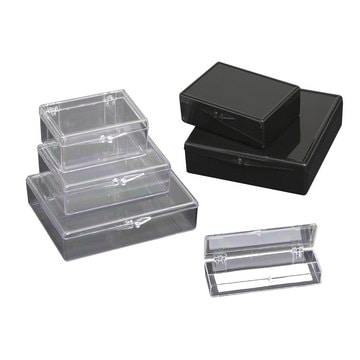03-0205-00
SMC® Human TDP-43 Immunoassay Kit
kit sufficient for 96 wells
Synonym(s):
TDP-43 Single Molecule Counting kit, TDP-43 immunoassay kit, TDP-43 ultra-sensitive immunoassay, Transactive Response DNA-binding Protein 43 immunoassay kit
About This Item
Recommended Products
Quality Level
usage
kit sufficient for 96 wells
species reactivity
human
packaging
pkg of 1 ea
manufacturer/tradename
SMC®
parameter
100 μL sample volume (CSF)
12.5 μL sample volume (serum and plasma)
assay range
intra-assay cv: ≤7%
(n=5)
linearity: 80-120%
recovery range: 80-120%
sensitivity: 5.21 pg/mL
standard curve range: 2.6-6,000 pg/mL
inter-assay cv: ≤11%
(n=3)
technique(s)
single molecule counting: suitable
input
cerebrospinal fluid (CSF)
plasma
serum
shipped in
wet ice
storage temp.
2-8°C
Related Categories
General description
Research Category:
Neuroscience
neurological
Research Sub-Category:
Alzheimer′s Disease
Aging
Nervous System
Neurodegenerative Diseases
Neurofilament & Neuron Metabolism
Neuronal & Glial Markers
Neuroregenerative Medicine
Neuroscience
Technique(s)
SMC® : High sensitivity protein biomarker detection immunoassay
Specificity
Application
Features and Benefits
- Accurate and reproducible performance on the state-of-the-art SMCxPRO® ultrasensitive immunoassay system
- Compatibility with automated liquid handling
Legal Information
Disclaimer
Signal Word
Danger
Hazard Statements
Precautionary Statements
Hazard Classifications
Acute Tox. 3 Dermal - Acute Tox. 4 Inhalation - Acute Tox. 4 Oral - Aquatic Chronic 3 - Eye Irrit. 2 - Repr. 1B
Storage Class Code
6.1D - Non-combustible acute toxic Cat.3 / toxic hazardous materials or hazardous materials causing chronic effects
Flash Point(F)
Not applicable
Flash Point(C)
Not applicable
Certificates of Analysis (COA)
Search for Certificates of Analysis (COA) by entering the products Lot/Batch Number. Lot and Batch Numbers can be found on a product’s label following the words ‘Lot’ or ‘Batch’.
Already Own This Product?
Find documentation for the products that you have recently purchased in the Document Library.
Related Content
Neuroscience biomarker research expands with high-sensitivity immunoassays for low-abundant biomarkers.
Neuroscience biomarker research expands with high-sensitivity immunoassays for low-abundant biomarkers.
Neuroscience biomarker research expands with high-sensitivity immunoassays for low-abundant biomarkers.
Neuroscience biomarker research expands with high-sensitivity immunoassays for low-abundant biomarkers.
Our team of scientists has experience in all areas of research including Life Science, Material Science, Chemical Synthesis, Chromatography, Analytical and many others.
Contact Technical Service










